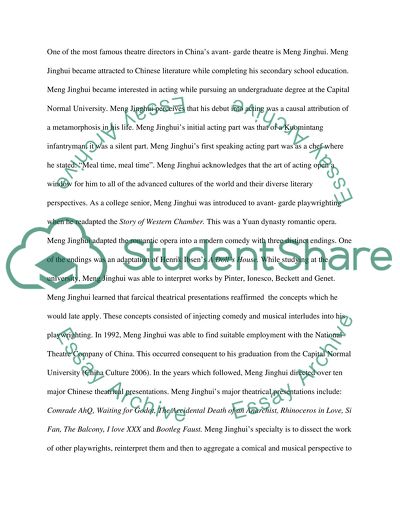Cite this document
(“Chinese experimental theatre is a hybrid product characterised by a Essay”, n.d.)
Chinese experimental theatre is a hybrid product characterised by a Essay. Retrieved from https://studentshare.org/visual-arts-film-studies/1440642-chinese-experimental-theatre-is-a-hybrid-product
Chinese experimental theatre is a hybrid product characterised by a Essay. Retrieved from https://studentshare.org/visual-arts-film-studies/1440642-chinese-experimental-theatre-is-a-hybrid-product
(Chinese Experimental Theatre Is a Hybrid Product Characterised by a Essay)
Chinese Experimental Theatre Is a Hybrid Product Characterised by a Essay. https://studentshare.org/visual-arts-film-studies/1440642-chinese-experimental-theatre-is-a-hybrid-product.
Chinese Experimental Theatre Is a Hybrid Product Characterised by a Essay. https://studentshare.org/visual-arts-film-studies/1440642-chinese-experimental-theatre-is-a-hybrid-product.
“Chinese Experimental Theatre Is a Hybrid Product Characterised by a Essay”, n.d. https://studentshare.org/visual-arts-film-studies/1440642-chinese-experimental-theatre-is-a-hybrid-product.


